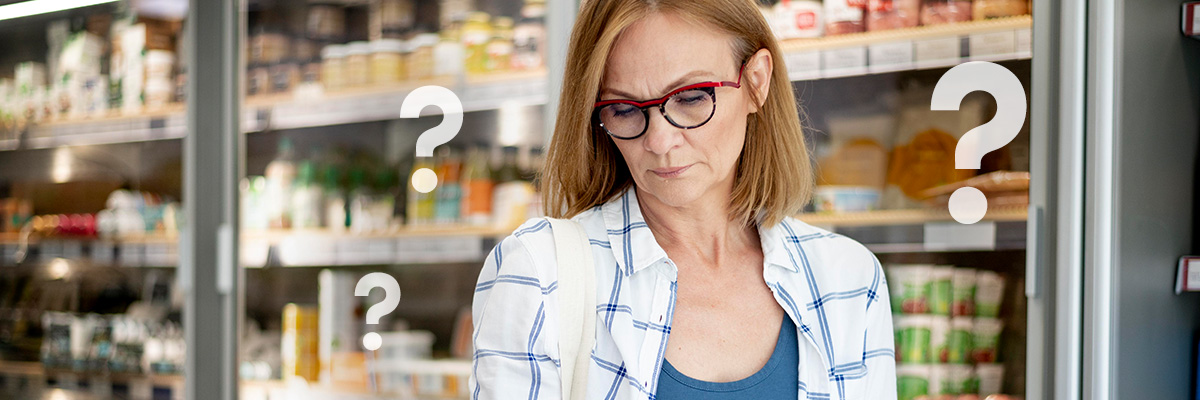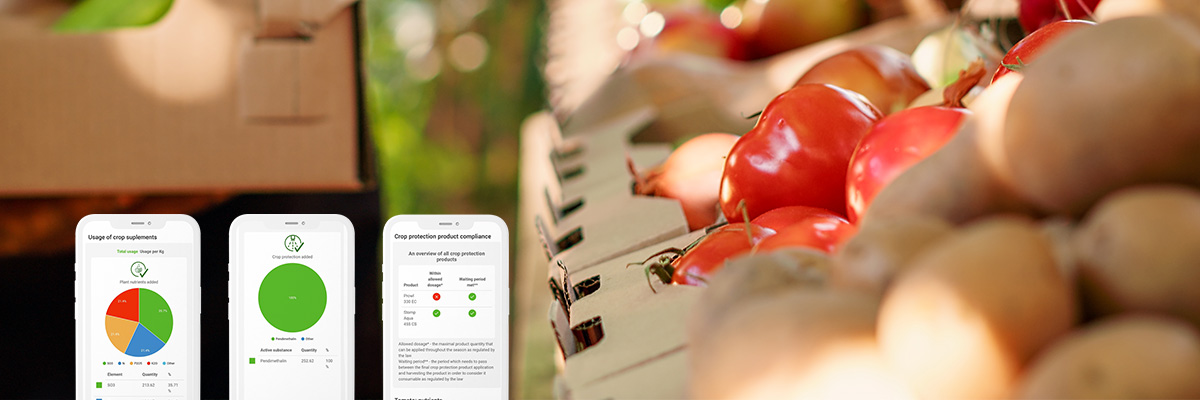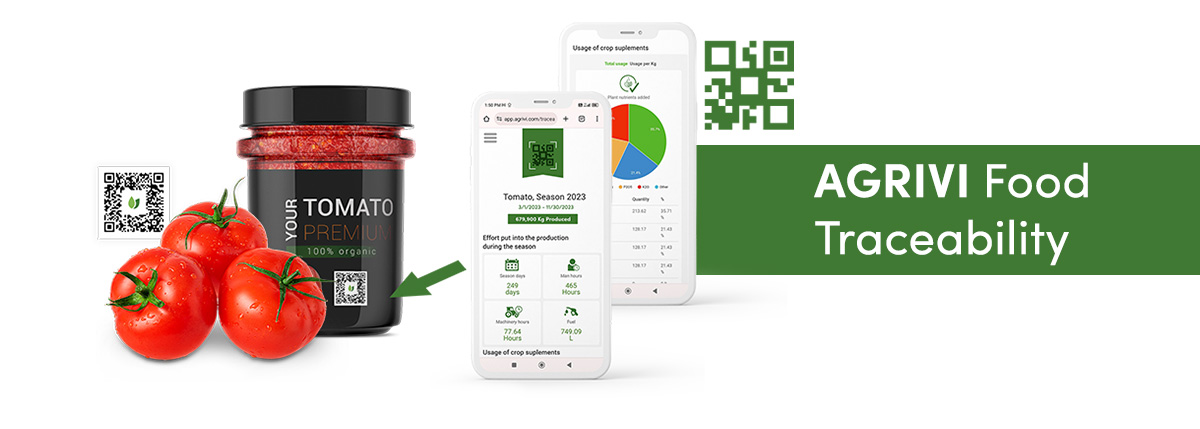Many companies make „green“, „organic“ or „sustainable“ claims about their food products, but rarely is there any clear, credible, or verifiable information to justify them.
In response, the European Union is leading the shift in setting the rules on sustainability claims with the Directive Empowering Consumers for the Green Transition through Better Protection against Unfair Practices and Better Information (“Greenwashing Directive”). This new directive aims to make product labeling clearer and more trustworthy by banning the use of general environmental claims without proof, as well as to empower consumers to make informed purchases using reliable information about products and traders.
Many food and retail companies producing or delivering food to the markets will soon be obliged to transparently communicate their sustainability, environmental, and social or ethical efforts.
What this means? Companies will have to show how the food was grown and provide buyers with transparency and reliability about the origin, quality, and safety of the purchased products.
Greenwashing Directive Targets Misleading Product Labels and Green Buzzwords

Image credit : google
Today’s society is becoming more aware of the importance of protecting the environment due to climate change. At the same time, consumers are becoming more and more conscious of the food they are buying, making healthy and sustainable eating their top priority. This has been capitalized by large corporations who advertise their products as ‘eco-friendly’ or ‘organic’ to influence the consumer to buy their products. Unfortunately, many of these claims are unsupported or simply false. Namely, a recent study by the European Commission found that more than half of green claims by companies in the EU were vague or misleading, and 40% were completely unsubstantiated. In the absence of harmonization or regulation, companies have essentially had free reign to advertise their products as they please, without any negative consequences. The new EU directive aims to harmonize this area of law to protect consumers from misleading marketing practices and help them make better purchasing choices. The Greenwashing Directive will come into effect at the EU level, and each Member State must implement the relevant elements within the two-year period. This means that this is the right time to consider implementing a technological solution that will make this transition process more fluent and provide your consumers with confidence in the food they’re buying.
Increasing Food Production Transparency to Customers with QR Codes

Image credit : google
According to the Directive, companies will have to present evidence to support their green claims as being legitimate. Moreover, companies will need to verify the accuracy of claims made by reviewing them at least every five years. That information must be accessible to consumers in a physical form or via a weblink, QR code, or equivalent. This is where technology comes in as a solution. AGRIVI Traceability digital solution gives food and retail companies the ability to provide transparent insight into the lifecycle of fresh or processed food products to the end customers, from seed to shelves. This solution enables companies to digitalize all production stages which allows the generation of detailed traceability reports at the end of the production process on every single product. A full traceability report available to end-buyers is available through only one QR code for each product, which enables them to get full traceability in the palm of their hand. Implementing Traceability solution not only implies fulfilling regulations, but it also benefits both consumers and companies:
- It showcases transparency of the food production process, giving information to the consumer that the products come from reliable sources and are safe for consumption. It provides reliability in the information about the origin, quality, and safety of the purchased products. It brings insight into the practices and care of the crops, as well as used crop protection products and other substances. It increases the value of food products. It increases trust in the product and loyalty to the brand.
Why Traceability Matters Now More Than Ever?

Image credit : google
EU’s new regulation shows that we have entered the era of food transparency. Making marketing claims will not be enough anymore, companies must be able to fully demonstrate the processes behind food production by giving concrete and transparent information about it to the customers. This, together with the ability to monetize transparency and higher food safety by implementing production traceability is a major benefit and a strong incentive for agri-food companies to digitalize their agriculture supply chains. Companies that will take the lead in the transparent approach to consumers are expected to benefit from the premium until transparent and traceable products become a norm.
Read also : Plant anatomy in Hindi ( पौधे की शारीरिक रचना ) father of indian plant anatomy
Read also : Soil Organic Matter in Hindi ( मृदा कार्बनिक पदार्थ )